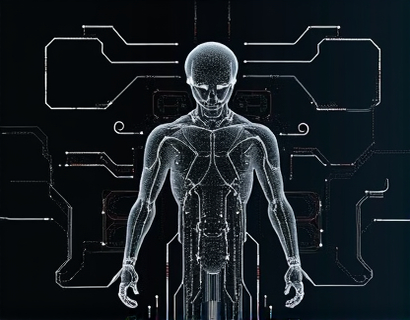AI Certification Dynamics: Navigating Recognition and Skill Validation in the Tech Industry
The rapid advancement of artificial intelligence (AI) has transformed the tech industry, creating a demand for professionals who can not only understand but also apply AI technologies effectively. As AI continues to evolve, the need for robust skill validation and recognition has become paramount. This article delves into the dynamics of AI certification, exploring how a comprehensive and recognized certification platform can empower both professionals and students, and navigate the complexities of skill validation in a competitive job market.
The Importance of AI Certification
In an era where AI is reshaping industries, holding a certification can significantly enhance one's credibility and marketability. AI certifications serve as a formal acknowledgment of an individual's expertise and commitment to staying updated with the latest AI technologies and trends. These credentials are not just beneficial for job seekers; they also provide employers with a reliable way to assess a candidate's skills and potential contributions to their organization.
Challenges in AI Certification Recognition
Despite the clear benefits, the landscape of AI certifications is fraught with challenges. One of the primary issues is the lack of standardization. With numerous organizations offering AI-related certifications, each with its own set of criteria and recognition levels, it can be difficult for professionals to determine which certifications are truly valuable and widely recognized. This fragmentation can lead to confusion both for job seekers and employers, making it challenging to validate the skills and knowledge of AI professionals.
Role of Comprehensive Certification Platforms
To address these challenges, a comprehensive certification platform that focuses on AI can play a crucial role. Such a platform would offer a curated selection of certifications that meet high standards of quality and relevance. By partnering with reputable institutions and industry leaders, the platform can ensure that each certification is recognized and respected across the tech industry. This approach not only simplifies the certification process for individuals but also provides employers with a reliable benchmark for evaluating candidates.
Curated Certification Offerings
A key feature of this platform is its carefully curated range of certifications. Each certification is designed to cover specific aspects of AI, from foundational concepts to advanced applications. For instance, a beginner might start with a certification in AI fundamentals, covering topics such as machine learning basics, data preprocessing, and model evaluation. As professionals advance in their careers, they can progress to more specialized certifications, such as natural language processing, computer vision, or AI ethics.
These certifications are not just theoretical; they often include practical components, such as hands-on projects or capstone assignments. This practical approach ensures that candidates not only understand the concepts but can also apply them in real-world scenarios. The platform can also offer continuous learning paths, allowing professionals to stay updated with the latest AI trends and technologies.
Enhancing Educational Credentials
For students and lifelong learners, AI certifications can significantly enhance their educational credentials. Traditional academic degrees, while valuable, may not always keep pace with the rapid advancements in AI. Certifications provide a flexible and efficient way to acquire specific skills and knowledge, complementing formal education. Employers increasingly recognize these certifications as indicators of a candidate's dedication and expertise in AI.
Moreover, certifications can open doors to new educational opportunities. Many institutions offer credit for relevant certifications, allowing students to accelerate their academic progress or pivot into AI-focused programs. This synergy between certifications and formal education creates a more dynamic and adaptable learning ecosystem.
Validating Skills in a Competitive Market
In a competitive job market, having a certification is just the first step. Validating skills continuously is essential to maintain and enhance one's professional standing. The certification platform can facilitate this by offering ongoing assessment tools and resources. For example, professionals can access online quizzes, peer reviews, and industry-specific assessments to regularly test and demonstrate their skills.
Additionally, the platform can provide a portfolio feature where professionals can showcase their certifications, projects, and achievements. This digital portfolio serves as a living document that evolves with the professional's career, making it easier to demonstrate growth and expertise to potential employers.
Industry Recognition and Collaboration
To ensure widespread recognition, the certification platform should collaborate with industry leaders and organizations. These partnerships can help align certifications with industry needs and standards, increasing their value and acceptance. For instance, collaborating with tech giants like Google, Microsoft, or IBM can lend significant weight to the certifications offered, as these companies are at the forefront of AI innovation and adoption.
Furthermore, the platform can engage with professional bodies and industry associations to promote the use of its certifications. By gaining endorsements from these organizations, the certifications can gain broader recognition, making them more attractive to both job seekers and employers.
Navigating the Certification Process
For those looking to obtain an AI certification, the process should be clear, accessible, and supportive. The platform can provide a step-by-step guide to help individuals navigate the certification journey. This guide can include information on selecting the right certification based on career goals, preparation resources, and the application process.
Preparation resources are crucial for success. The platform can offer a range of study materials, including video tutorials, interactive courses, and practice exams. These resources should be designed to cater to different learning styles and levels of expertise. Additionally, the platform can facilitate connections with mentors and study groups, providing a supportive community for learners.
Assessment and Feedback
The assessment process should be rigorous yet fair, ensuring that candidates are genuinely evaluated on their knowledge and skills. After completing the certification exam, candidates should receive detailed feedback on their performance, highlighting areas of strength and areas for improvement. This feedback is invaluable for continuous learning and improvement.
For those who do not pass the initial exam, the platform can offer retake options and additional support, such as access to study groups or personalized coaching. This approach ensures that the certification remains accessible and achievable for a wide range of candidates.
Future of AI Certification
As AI continues to evolve, the landscape of certifications will also need to adapt. The certification platform must remain agile and responsive to emerging trends and technologies. This includes regularly updating certifications to reflect new developments and introducing new credentials as needed. By staying ahead of the curve, the platform can continue to provide value to its users and maintain its relevance in the industry.
Moreover, the platform can explore innovative certification formats, such as micro-credentials or stackable certifications, which allow professionals to build their skills incrementally. This flexibility can cater to the diverse needs of learners, from those seeking a quick skill boost to those aiming for long-term career advancement.
Conclusion
In conclusion, AI certifications play a vital role in validating skills and enhancing career prospects in the tech industry. A comprehensive and recognized certification platform can navigate the complexities of skill validation, providing professionals and students with the tools they need to succeed. By offering curated certifications, supporting continuous learning, and fostering industry collaboration, such a platform can empower individuals to thrive in the AI-driven job market. As the tech industry continues to evolve, these certifications will remain an essential component of professional development and success.










































